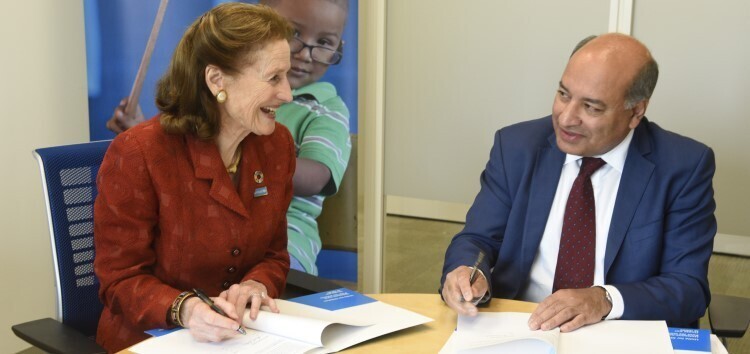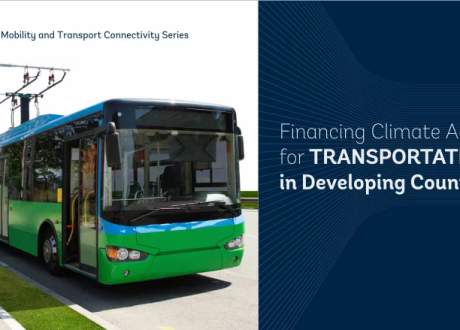
Egypt’s Abouleish among 100 Most Influential Africans 2024 in civil society
Egypt’s Helmy Abouleish, a prominent figure in the field of sustainable agriculture, particularly known for ...

The European Bank for Reconstruction and Development (EBRD) and UNICEF are teaming up to boost access to economic opportunities, including through access to skills, employment and basic services for young people and women in the economies where the Bank invests.
Under a Memorandum of Understanding (MoU), signed by EBRD President Suma Chakrabarti and UNICEF Executive Director Henrietta Fore, the two institutions pledge to bring together public and private stakeholders to enhance vocational education, skills and training for women and young people and increase their access to employment. In particular, the EBRD and UNICEF will explore opportunities to enhance the school-to-work transition, as well as connect secondary education and training to employment and entrepreneurship.
The EBRD and UNICEF are also looking to help vulnerable groups gain better access to services around the EBRD’s sustainable infrastructure investments, such as those in water, wastewater, sanitation, solid waste and transport projects.
The two institutions will also look to increase equal opportunities for underserved groups, such as refugees, migrants and groups affected by forced displacement, as well as people with disabilities and those discriminated against because of their gender identity and sexual orientation.
The collaboration is being initiated with pilot projects in selected countries in Central Asia, eastern Europe and the southern Caucasus region, and could be extended to other regions.
The signing took place on the margins of the UN General Assembly and the SDG Summit in New York and will contribute to the implementation of the 2030 Agenda for Sustainable Development.
EBRD President Suma Chakrabarti said: “Creating a favorable environment for women and young people is of great importance. The EBRD is committed to enhancing economic integration of these groups through investment and support for policy reform.”
UNICEF Executive Director Henrietta Fore commented: “Today marks the beginning of a new, transformative partnership for children. Effective public-private alliances will enable innovative solutions to fast-track progress towards the Global Goals.”
The MoU’s targets are aligned with UNICEF’s Strategic Plan 2018-21 as well as with the EBRD’s key objectives as laid out in the Bank’s Economic Inclusion Strategy 2017-21 and the Strategy for the Promotion of Gender Equality 2016-20.
Egypt’s Helmy Abouleish, a prominent figure in the field of sustainable agriculture, particularly known for ...
A study – by the Potsdam Institute for Climate Impact Research (PIK) – suggests that ...
Investing in resilient transport in low- and middle-income countries (LMICs) requires $417 billion annually between ...


اترك تعليقا